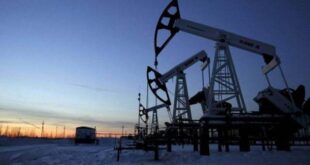Gas prices are still expected to stabilise heading into winter despite a recent rise in spot prices on European benchmarks, energy experts have said.
The UK Natural Gas Futures benchmark rose 7.2 per cent to £1.10 per therm this morning, while the Dutch TTF Futures rose 7.1 per cent to €42.60 per megawatt hour.
Prices have increased by about 20 per cent this month as the threat of industrial action at key Liquefied Natural Gas (LNG) plants in Australia loomed, although these disputes have now been resolved.
Prior to Russia’s invasion of Ukraine, UK gas prices traded at between 40p and 45p per therm, while markets traded below €20 per megawatt hour on the continent.
However, the price of future gas contracts for November has stayed flat and futures for December have actually fallen by more than two per cent.
Experts said this was because of declining industrial demand and recent mild temperatures.
Ole Hansen, head of commodity strategy at Saxo Bank, told City A.M. the recent surge in spot prices was a short-term trend driven by supply concerns from “prolonged maintenance” at Norwegian facilities such as the Skarv gas field – a major site in European waters. Norway is the chief supplier to Europe following Russia’s squeeze on gas flows and Western sanctions on the country.
“The outlook still points to relatively stable gas prices ahead of the high demand season, which is still more than a month away,” he said.
Wayne Bryan, director of gas research at Refinitiv, believed the outlook was still “relatively rosy,” and confirmed that “nothing was really changing fundamentally, even if short term prices are high”.
He said the current trend of spot prices being higher than futures prices reflected the “bearish” positioning of investors across gas markets.
Callum Macpherson, head of commodities at Investec, noted that European gas storage levels are at 95 per cent and this would likely put downward pressure on short-dated prices in the coming months.

 Iran Energy News Oil, Gas, Petrochemical and Energy Field Specialized Channel
Iran Energy News Oil, Gas, Petrochemical and Energy Field Specialized Channel



